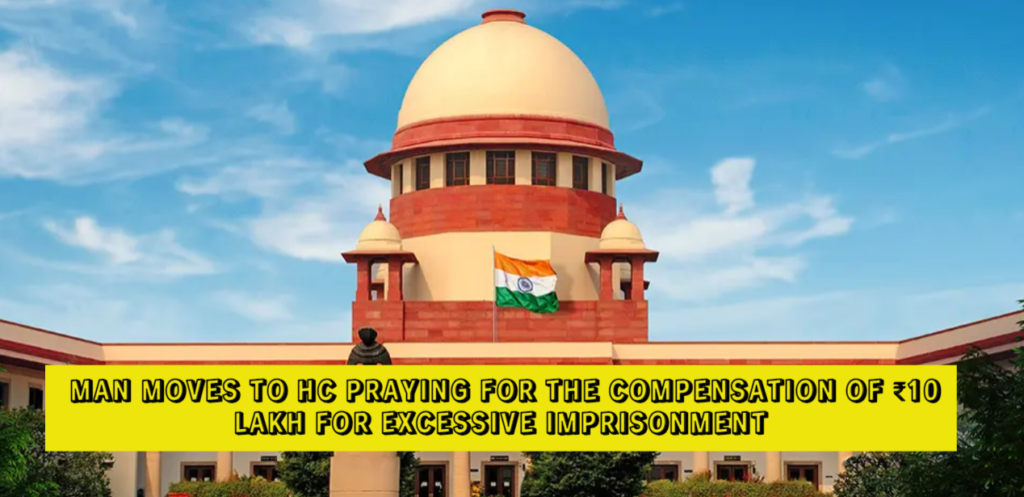
Case – GANESH RAM VISHWAKARMA VERSUS THE STATE OF MADHYA PRADESH (Writ Petition, 2022)
DIVISION BENCH OF Chief Justice Ravi Malimath and Justice Vishal Mishra
A Writ petition filed by the man was essentially dealing with the compensation he sought for excessive imprisonment. But, later it was found by the High Court that the man was released on an erroneous decision and that he shall surrender to the jail authorities to serve the remaining part of his punishment, hence dismissing the Writ Petition.
So the case facts were that the petitioner was convicted under three different cases –
- 21(c), 18 (c)of NDPS Act
- S. 307 of IPC
- S. 8, 21 of NDPS Act
Sentences for these cases were to run concurrently and to top this up with, he was liable to pay the fine of ₹2 lakh, at the time he completed his time in jail he filed a petition under Section 482 of CrPC (Saving of Inherent powers of High Court) while praying for his release. But the direction was issued that if he pays the Fine he can be released. According to the reports and documents submitted by the Jail authorities, in lieu of his fine amount 4 years of additional jail years were added. So, he was not released.
He then filed the Writ of Habeas Corpus that his imprisonment was violating the A. 20 of the Indian Constitution. Though the Writ was dismissed, but the learned Judge under the powers of S. 482 of CrPC gave him the liberty to approach the appropriate Forum for the same petition. Though, he didn’t. Rather he approached the same court, regarding the same matter and seeking his release under S. 482. And this time his petition was ALLOWED. Petitioner was released without paying the fine due.
Due to eight extra months of imprisonment, he requires compensation for his trouble, he filed another petition before the HC, in violation of A. 21 of the Indian Constitution.
The petitioner in this case referred to Bhola Kumar v. State of Chattisgarh decision by the Apex Court and hence he was entitled to get compensation. On the contrary, the State argued that –
- His 2nd application is not maintainable since the matter was already decided in the 1st application.
- The petitioner wasn’t granted the liberty to file another application subsequent to the dismissal of first application u/s 482 with the same prayer.
- He has 4 more years to serve in lieu of the remaining fine amount.
The Court questioned the maintainability of Second application under S. 482 of CrPC by the Petitioner. The court observed –
Granting liberty to approach appropriate forum does not mean that the petitioner can again file a petition under Section 482 of Cr.P.C. praying for same relief, which was rejected by this Court in earlier round of litigation. It is seen from the record that the learned Single Judge has considered the aspect that while exercising the inherent powers the orders can be passed.
Thus, the court held that the proceedings in relation to 2nd application were void ab initio and that petitioner could have not been released as the learned judge didn’t had the powers to deal with the petition.
The court also opined that, instead of this petition the Petitioner should have questioned the reports submitted by the Jail authorities to demonstrate the reasons as to how petitioner were to serve four years in lieu of paying the fine amount. And, what were the findings of the Court while dismissing his first application.
Therefore, the prayer for compensation was dismissed and he had to undergo the remaining sentence. And, so court asked the petitioner to surrender himself before the jail authorities, failing to do so, the lower Court could issue arrest warrant. Though, a liberty was provided to the petitioner, that if he pays the fine amount in a month’s time, he could be released. Hence, the petition was dismissed.




0 Comments